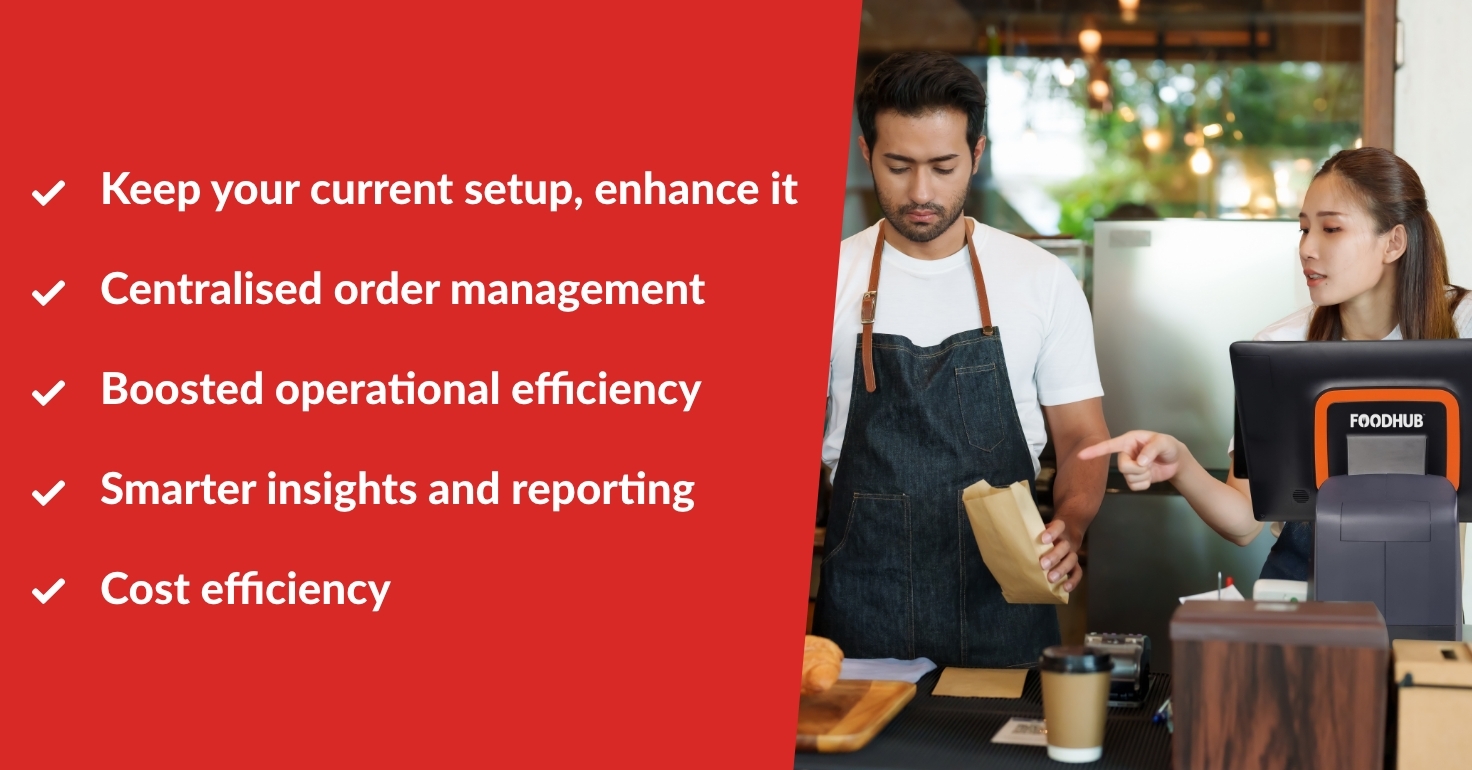What Is Foodhub Integration? How It Works & Key Benefits for Restaurants


Running a restaurant today isn’t just about good food—it’s about how seamlessly you manage operations behind the scenes. Whether you’re using a POS system, taking online orders, or working with delivery partners, integrating all these touchpoints is crucial for efficiency and growth. That’s where Foodhub integration steps in.
Let’s break it down: What is Foodhub integration? How does it work? And more importantly, how can your restaurant benefit from it without changing your existing setup?
Foodhub integration is all about connecting your current restaurant systems, like your POS, payment provider, kiosk, or delivery partner platforms, directly with Foodhub.
You can keep using your current system without any interruptions while still getting the benefits of Foodhub’s order management, marketing, and analytics tools. Instead of making you change everything, Foodhub works smoothly with what you already use.
Whether you use a third-party POS or restaurant management tool, Foodhub connects via APIs or plug-ins to sync real-time orders, menus, and customer data.
Already using a trusted POS system? With Foodhub’s POS integration, you can sync online orders directly to your existing setup—no manual entry, no disruptions. It streamlines your operations and ensures every order flows smoothly from screen to kitchen.
Already working with major delivery players? No problem. Foodhub enables the integration of delivery partners to consolidate all incoming orders into a single, streamlined dashboard.
Accept payments with ease—Foodhub links with your current payment processor to ensure smooth transactions online and in-store.
If you’re running a self-service kiosk, Foodhub kiosk integration plugs in to streamline orders and sync them with your kitchen and POS in real time.
In short, Foodhub becomes the glue between your systems, enhancing rather than replacing them.

Now let’s talk about the real-world value. Here’s what you gain from integrating Foodhub into your existing setup:
There’s no need to rip and replace. Whether you're already invested in a third-party POS or working with existing delivery partners, Foodhub enhances your tech stack without disrupting operations.
Manage orders from your website, app, third-party platforms, and delivery partners all in one place. It reduces manual entry, missed orders, and confusion during peak hours.
Pro Tip: How Restaurant Management Is Made Easy with Foodhub Integrations
Automated sync between systems means fewer errors, faster service, and happier customers. Your staff focuses more on food and customer experience, less on admin.
With everything integrated, Foodhub delivers richer, unified data. Understand customer habits, popular items, and delivery patterns to make smarter business decisions.
By integrating with your existing tools, there’s no need for expensive migrations or retraining. You get powerful tools at a fraction of the cost.
More restaurants are opting for Foodhub integration because it’s flexible, cost-effective, and future-ready. Whether you’re running a high-street takeaway or a growing multi-location brand, the ability to plug Foodhub into your current system gives you a serious competitive edge.
So if you’ve ever thought, “Do I have to change everything to use Foodhub?” — the answer is a resounding no. Keep what works. Supercharge it with Foodhub.
Talk to our onboarding team to find the best Foodhub integration for your restaurant setup—whether that’s POS, delivery partners, or self-order kiosks.
